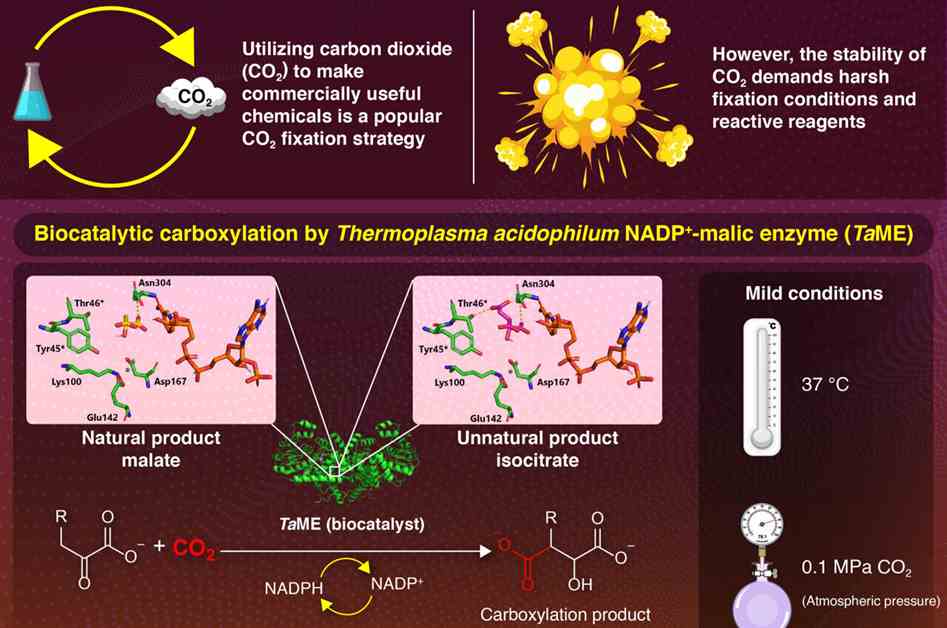Revolutionizing Carbon Dioxide Conversion: A Breakthrough in Biocatalyst-Driven Carboxylation
Carbon capture and utilization technologies have gained significant attention for their potential to convert carbon dioxide into valuable products. Recently, researchers from Tokyo Tech have made a groundbreaking discovery in the field of biocatalyzed carboxylation reactions, offering a sustainable and efficient approach to CO2 fixation.
In a study published in JACS Au on May 13, 2024, Associate Professor Tomoko Matsuda and master student Yuri Oku from the Department of Life Science and Technology at Tokyo Institute of Technology demonstrated a novel strategy for carboxylation using the Thermoplasma acidophilum NADP+-malic enzyme under mild reaction conditions. This innovative approach allows for the selective synthesis of carboxylic acids through carbon dioxide fixation reactions, offering a promising solution to the challenges posed by excess CO2 in the environment.
Traditionally, the stability of carbon dioxide has made it challenging to use as a starting material for carboxylic acid production, requiring reactive reagents and high temperature and pressure conditions. By harnessing the power of biocatalysts, such as the Thermoplasma acidophilum NADP+-malic enzyme, Matsuda and Oku were able to successfully catalyze the carboxylation of both natural and unnatural substrates, pyruvate and 2-ketoglutarate, under milder conditions.
Through their research, Matsuda and Oku have unlocked new possibilities for the selective synthesis of carboxylation products using more environmentally friendly reagents and reducing the energy burden of the entire carbon capture and utilization process. Their findings pave the way for the widespread adoption of biocatalysis in carbon dioxide utilization, offering a sustainable and efficient solution to address the challenges of excess CO2 in the environment.
In conclusion, the biocatalyst-driven carboxylation strategy developed by Matsuda and Oku represents a significant advancement in the field of carbon dioxide conversion, opening up new avenues for the utilization of this abundant greenhouse gas as a valuable resource.
Biography:
Associate Professor Tomoko Matsuda is a leading researcher in the field of biocatalysis and carbon capture technologies. She completed her Ph.D. in Biochemistry from Tokyo Institute of Technology and has since been actively involved in research aimed at developing sustainable solutions for environmental challenges. With a focus on harnessing the power of biocatalysts for carbon dioxide conversion, Matsuda’s work has significantly contributed to the advancement of green chemistry and sustainable practices in the field of chemistry and biochemistry.


